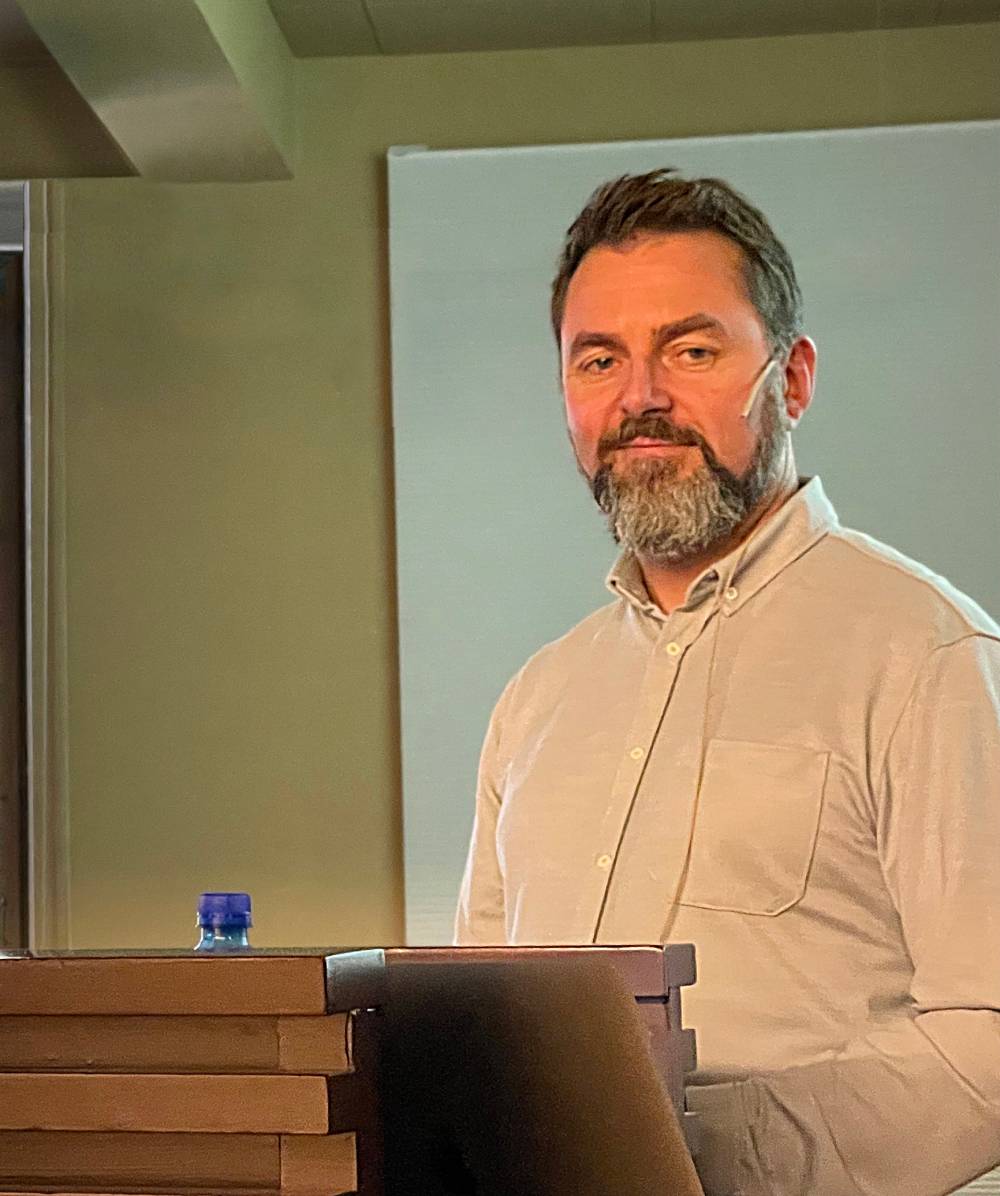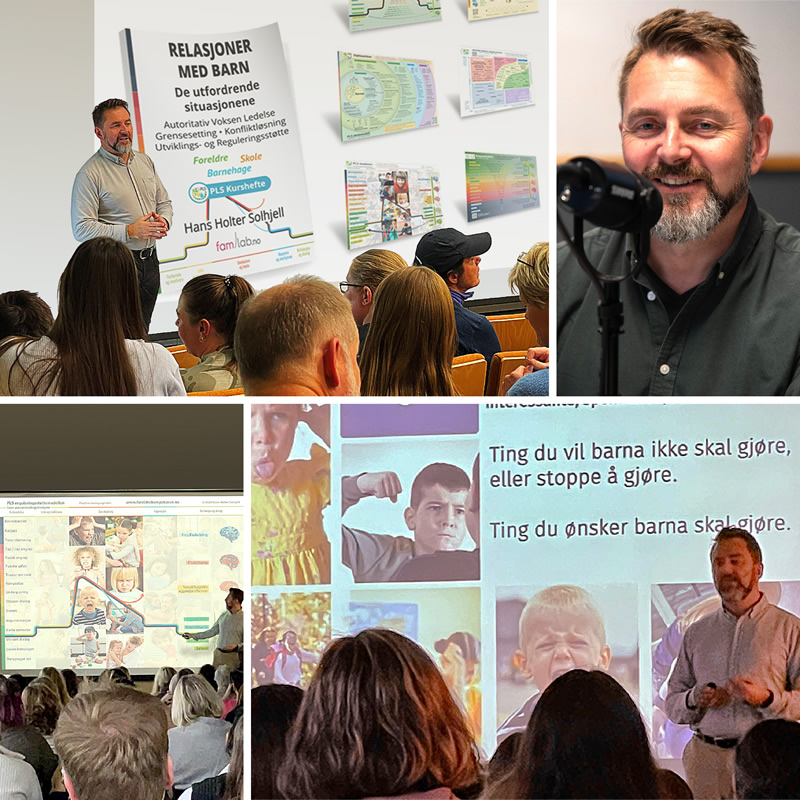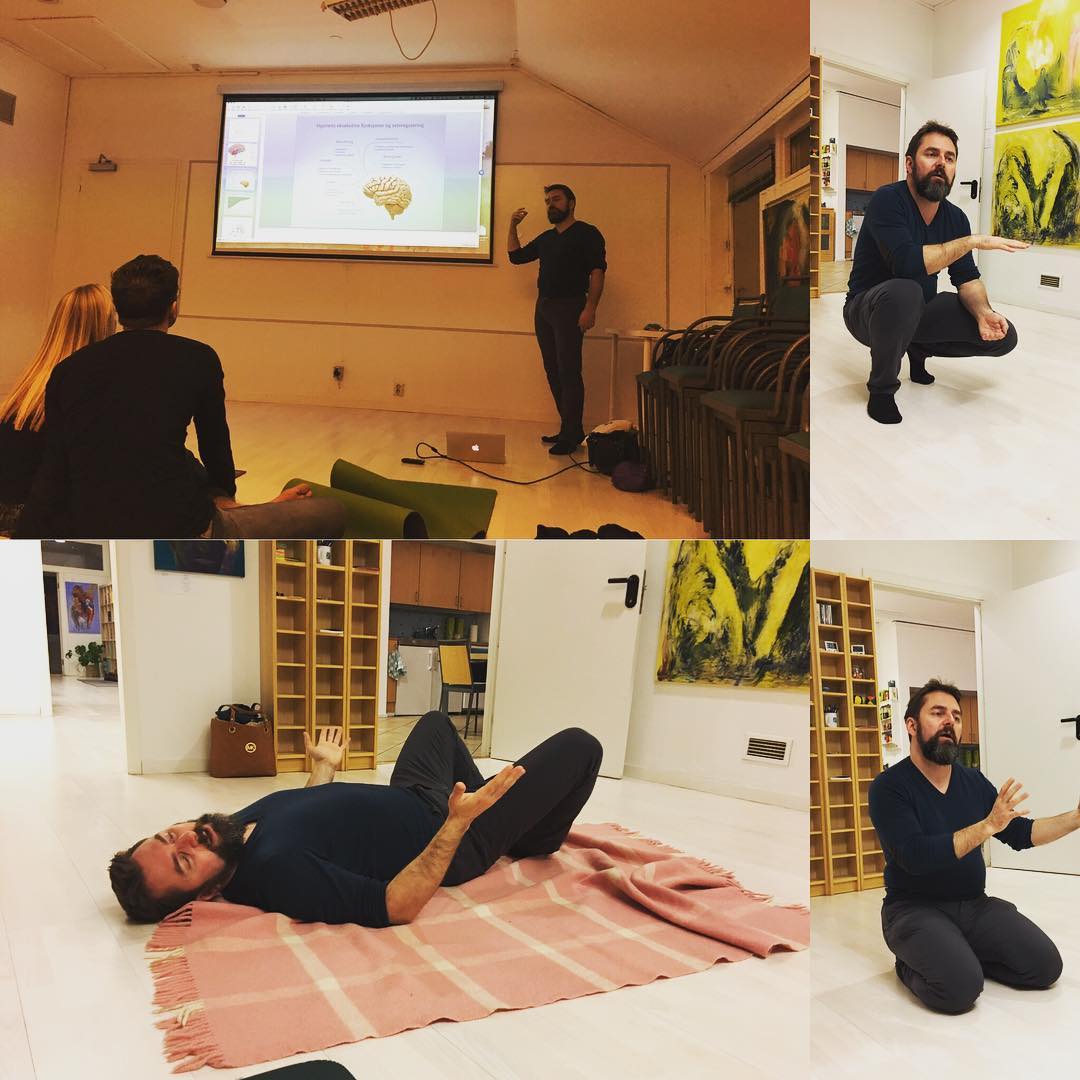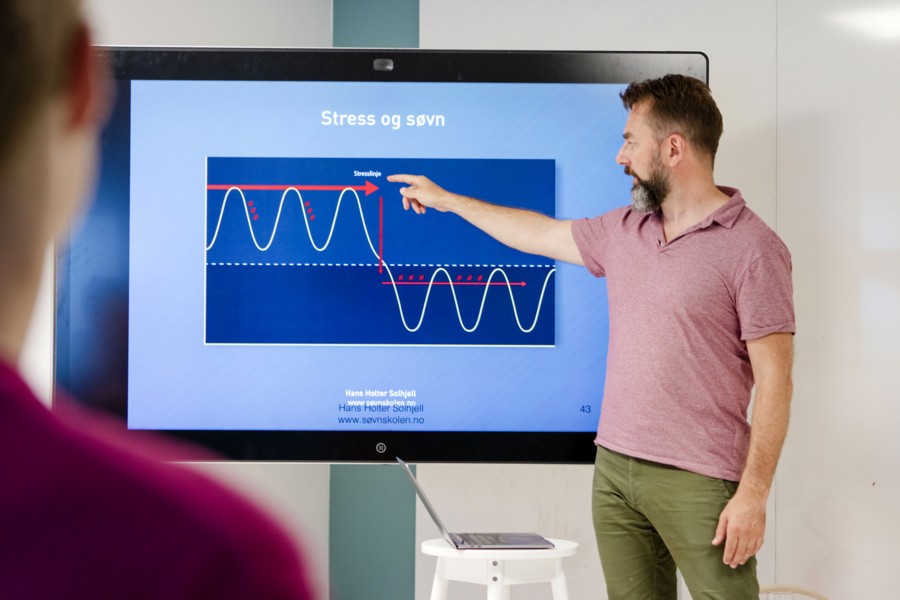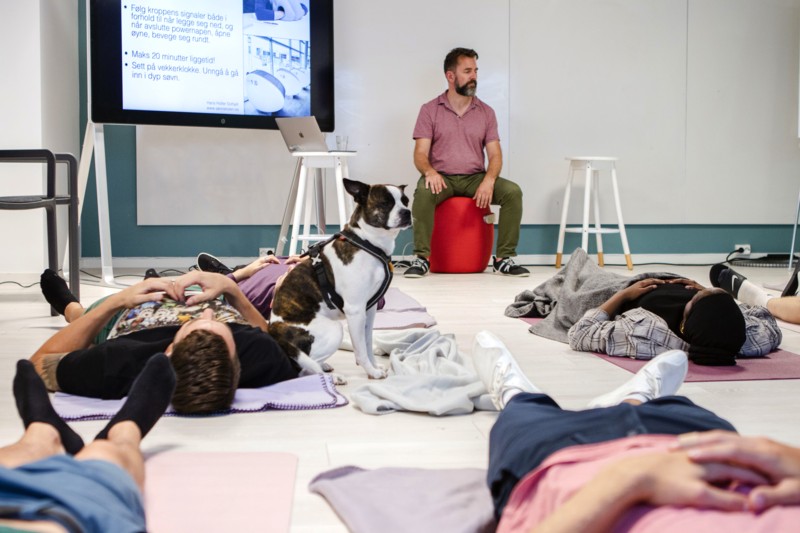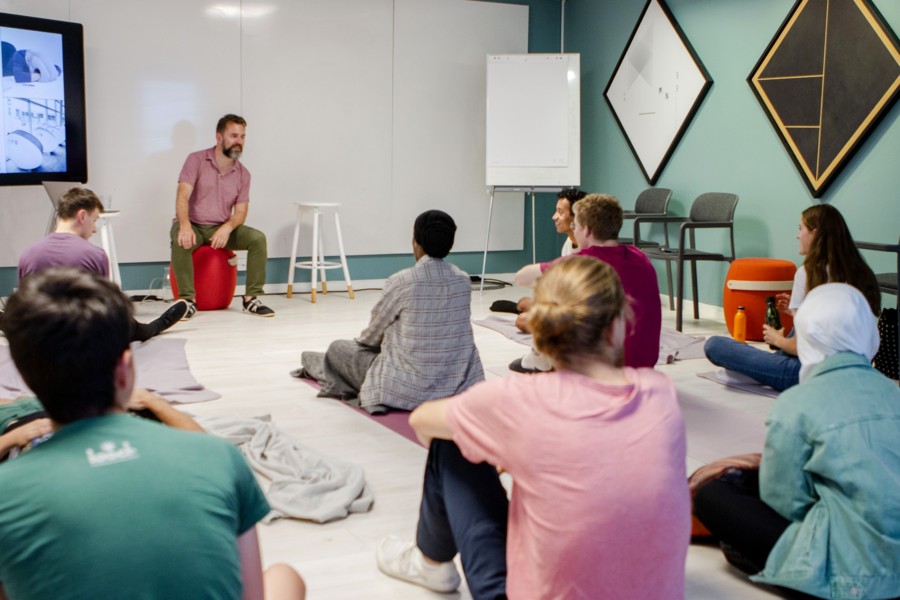
Hans Holter Solhjell
Hello,
My name is Hans I am the creator of the Response Funnel model and the PLS regulation support model and a Norwegian educator and developer in the field of parenting, communication and conflict resolution and body-oriented learning, self-development, and trauma work.
I provide individual sessions, classes, and training programs for parents and professionals, teach some of the classes and training programs you will find on this website, as well as on www.foreldrekompetanse.no and www.oppmerksombevegelse.no, and also organize programs with other professionals.
On this page, you will find more information about me, in a short and a longer version. If you just want a quick overview, here is the short version.
Short introduction.
I have been teaching courses and consulting since 2006. Before starting my practice, I completed a major in pedagogy/educational science and then worked for the Norwegian Police University College in Oslo, where I taught psychology.
I became actively involved in self-development in my early 20’s and focused on learning and change processes, body-oriented methods, communication, and conflict resolution, among other interests since then. I studied to become a Feldenkrais method practitioner, Somatic Experience practitioner, as well as a TRE Certification Trainer. I am also certified in Communicology (A Scandinavian version of NLP) and the Sounder Sleep System.
I have developed several models in the field of communication, conflict resolution, development support, and body-oriented self-development, most notably, the PLS Regulation Support model (PLS: Positive Learning Spirals) a practical and process-oriented method for development-supportive communication and conflict resolution in relationships with children, as well as The Response Funnel model.
You can read about the PLS regulation support model (in Norwegian only at this time) here and about the Response Funnel model here. I have also written a number of articles on communication with children, conflict resolution, learning motivation, etc. (in Norwegian only at this time) which you can read here.
Download your copy of the
PLS Regulation Support Model
here!
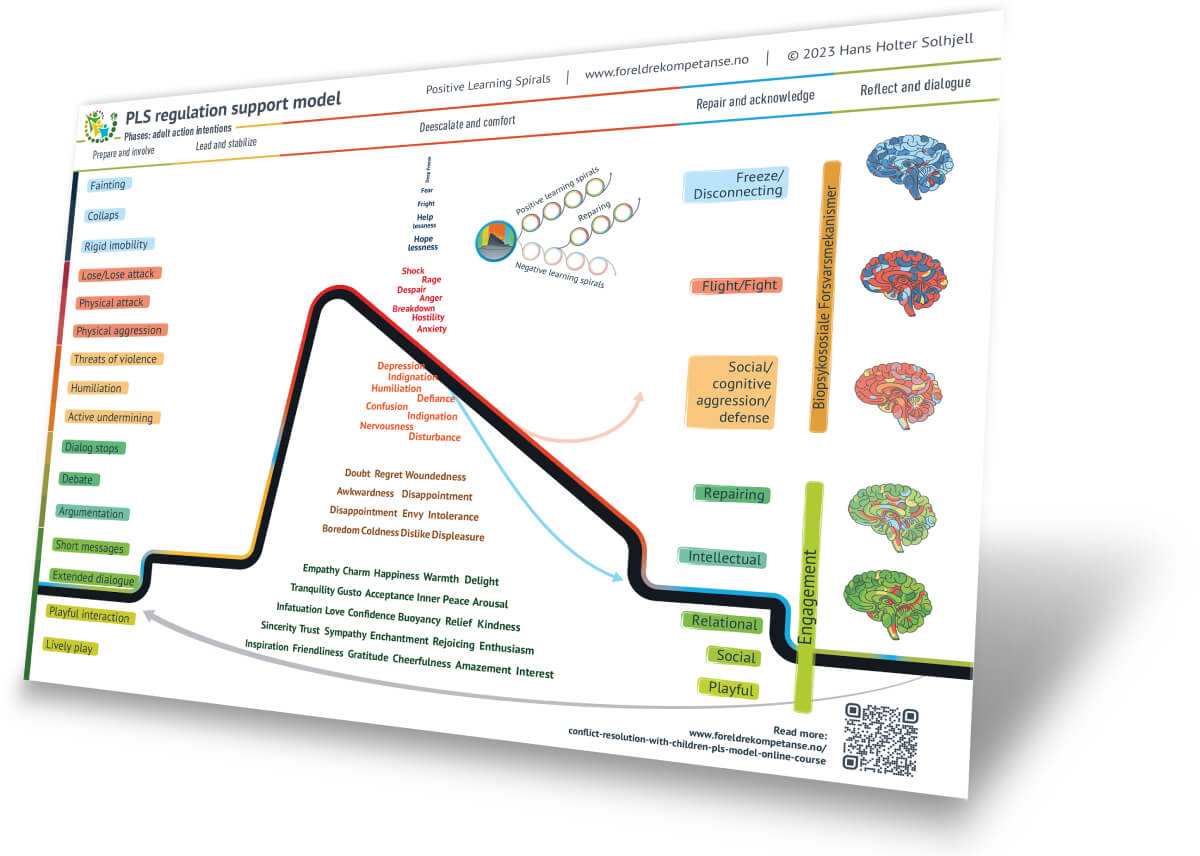
I work with consulting and courses for parents, staff in kindergartens and schools focused on developmentally supportive communication and conflict resolution, as well as with body-oriented trauma therapy, and learning and development processes.
I also teach an instructor training in TRE (now also available in English) as well as a practitioner training in conflict resolution and the PLS regulation support model for professionals (Coming in English. Sign up for information here).
The Long Version…
The primary motivation and backdrop to my work is my own experience with personal development and deep personal change processes.
While growing up, I had problems with stuttering, social anxiety, and depression, which worsened throughout my teens. As my motivation to do something about this grew, in my early twenties, as a student, I began to study methods, research, and theories related to these problems.
Aikido, Body Awareness, Breathing, and Meditation.
Also, in my early years as a university student, I, for a few years, practiced the Japanese martial arts Aikido, which includes meditation, focus on breathing, and what in many Eastern traditions is called the physical and spiritual center of the body – hara.
The meditation and body awareness practices in Aikido led me to become aware, in a direct experienced way, of the bodily dimensions of mood, anxiety, and the psyche. I became particularly aware of how my breathing worked very poorly, with a lot of uneven, choppy, and held breath.
These experiences also led me to an interest in understanding more about the body in relation to the self. After reading the book “lessons in life from the art of juggling” by Tony Buzan and Michael Gelb I started exploring different approaches in this field, first the Alexander technique and later on the Feldenkrais method.
These practices led to significant positive changes in the form of increased inner calm and stability, better breathing, and a greater sense of safety and confidence in a variety of situations. But despite these improvements, I sensed there were significant inner limitations, and deep tensions to work on within myself.
Some aspects of these tensions also became worse and even painful as a result of the early meditative and bodywork practices I worked with. Regardless, I realized there was more significant potential to be tapped in the form of more general well-being, comfort, and natural relaxation, along with increased vitality, freedom, sense of security, mastery experience, and the quality of relationships.
This led me to understand more about trauma and explore trauma oriented and autonomous movement/emotional release methods, like Bioenergetics, mostly by myself. This helped to gradually resolve the negative tensions and pain, and made the other practices I continued to work with have better effect with much less, and mainly only short term, moderate, negative side effects.
After 10 years of autonomous movement/emotional release work by myself I trained to become a SE, Somatic Experiencing, practitioner and after that a TRE, Trauma Release Exercises, instructor and Certification Trainer.
Learning to learn and self-development.
As a student at the University of Oslo (UIO), circa 1992, I quickly became interested in learning processes, how to learn, and perform more effectively, both with regards to academic subjects but also learning other skills, like relational communication skills, presentation skills, and also physical skills like juggling, slacklining, swimming, martial arts, and self-defense, etc.
And I found this learning and performance-oriented focus more refreshing and positively slanted than the therapeutic framework. So after a year of law studies and a year of psychology, I continued with and majored in pedagogy and educational science.
Pedagogy proved to be a good subject for me, as academic pedagogy is very broad, both in relation to themes, theories, and perspectives. For example, the intellectual scope of the university training in psychology is more limited to psychology in a narrow sense, intellectually, while the pedagogical field embraces psychology, sociology, anthropology, philosophy, epistemology, history, didactics, and more.
In addition, pedagogy as a university study has a broader approach to methodology, science, academics, and theory than academic psychology. This broader, multi-disciplinary approach is perhaps not so strange since pedagogy broadly is about how knowledge in societies and cultures (including the scientific and academic culture) is produced, reproduces, and changes over generations.
As a person with a broad, albeit slightly unwieldy, range of interests, it was possible in pedagogy to find an academic framework that could embrace much of what I am interested in and concerned about, such as change, development and learning processes, performance improvement, communication, conflict resolution, organizational development, culture, society and politics, economics and even body-oriented perspectives, learning processes and practice-oriented methods.
Communication, Mindful Movement, change, and learning processes.
As I became interested in the processes of change, I continued to explore body-oriented change systems, meditative forms of movement, therapy, and self-development in general, and also trained in several modalities, like Communicology (a Scandinavian version neuro-linguistic programming, NLP), the Feldenkrais method and then later on, Somatic Experiencing and TRE. I also took courses in expressive arts coaching, improvised theater, etc.
Me teaching a class on sleep improvement and stress management for employees and volunteers at the organization The Human Aspect,
www.thehumanaspect.com. The dog in image nr 2 also fell asleep during the exercise :). Photos by Matias Hagen.
Gradual and Continuous Improvement through long-term processes
Working with these processes I made significant progress in relation to my stuttering, anxiety, and depression. My stutter had been a stressful problem for many years – both physically and mentally. It used to be difficult to speak in any situation. I dreaded even simple tasks like buying a stamp at the post office. Speaking in public was almost unthinkable.
I gradually improved, over several years. And even after the problems were almost gone, or significantly reduced, the improvements continued. My stutter was for long periods completely gone and my voice quality and ease of speaking continued, and still continue, to improve. I gradually felt far more comfortable and safe in all types of situations and coping with myself and relationally a lot better than before.
Regarding public speaking, I have taught easily for several hours in large assemblies, even with several hundred participants. I have also become more and more comfortable in entirely new situations, in strange surroundings, when things change and do not go according to plan, and connect with new people in a more natural and relaxed way, which I certainly did not previously.
Interestingly, I also experience a much-improved learning ability and capacity for change not just mentally and emotionally but also in relation to physical coordination ability, balance, and learning of motor skills like slacklining, martial art (I did some years of Aikido and later on, some years of Krav Maga), football, swimming (Total Immersion method), barefoot running, juggling, etc, and improvement in skills I already had, like skiing, ice skating, etc.
I was interviewed for an article about barefoot running in Norway’s largest national newspaper, VG.
Some Parkour inspired running fun in The Vigeland sculpture park, Oslo, Norway. Younger and fitter than today 🙂
Off-piste skiing in the Trysil ski resort, Norway.
Learning how to slackline. Music by my son Herman, 14 years old when he made the music.
Having experience with a development process of this kind, which involves physical, emotional, cognitive, and relational changes over many years, has been a significant motivator and inspiration both professionally and personally.
My experience has been that combining methods with cognitive, physical/emotional, sensorimotor, and relational elements yields far better results than working with each component, such as only cognitive elements, or only the body, in isolation. Also, including a focus on movement, nutrition, sleep, etc. is essential.
The Homeodynamic Self
This process, and the integrated use of the different methods mentioned above, was also the theme of my master thesis in pedagogy titled ‘The Homeodynamic Self’.
In the 200 page thesis, I put together a practical process-oriented model for understanding and working on long-term personal change and development. The model focuses on the cognitive, emotional, physical, psychomotor, and social aspects of long-term self-development processes. I also compared the practical model with the most relevant research and theories in the biopsychosocial field.
The goal of the model is to help understand, create, and support long term, even life long, healing, and self-development processes. This long-term approach, and describing longer-term processes, is something that I find lacking in many methods and therapies today. Some sources of inspiration for understanding and modeling longer-term processes have been dynamic systems theory as well as Ken Wilbers Integral theory.
Fatherhood, communication, conflict resolution and developmental support.
In 1999 I became a father for the first time, and my second son was born in 2014. In 1999 I had been studying self-development, psychology, and pedagogy for several years, both at university as well as a passion, and it felt natural to become more involved in how to prepare for how to be a father and support my son, on a relational and emotional lever, right from the start, instead of working on changing negative trends much later.
As someone interested in self-development, learning and developmental processs, communication and body-oriented change work, children’s development and learning, and developmental psychology is obviously very interesting.
The same goes for relationships with children, communication, conflict resolution and more. Most people who have had young children know that there can be many conflicts in one day. Of course, this is tiring, but it is also a perfect opportunity to become good at communication, conflict management, and relationships.
I would argue that for most people, becoming parents, and having children, as well as working with children, can be the best opportunity you have to become very good at relationships, communication, and conflict resolution. During my studies and practice, I have looked for the most interesting and useful approaches to creating a positive development for children and deveoping a good relationship, as well as and offer some of these through courses, consulting and training programs.
I have also developed several concrete and practical models to make it easier to understand, learn, and practice good communication and conflict resoluiton in relationships with children and youth. The most important of these models I call the Positive Learning Spirals (PLS) Regulation Support Model. You can read (in Norwegian only at this point) more about this model here.
The main focus of my courses and trainings for parents and professionals is on communication and conflict resolution in relationships with children along with how conflicts can be the starting point for some of the most critical learning and development that happens both for the child, the adults, and their relationship. You can read more about this training here.
I also manage the Norwegian part of an international training and consulting business developed by the well-known Danish family therapist and author Jesper Juul, called Famlab.
Teaching psychology at the Norwegian Police University College in Oslo.
After completing my master’s degree in pedagogy, I taught psychology at the Norwegian Police University College in Oslo. The psychology course has a large emphasis on communication and conflict resolution skills, understanding stress and stress management, perception, and witness psychology.
As I already had a great interest in these topics, and a practical approach to my academic interest, this was a great learning opportunity for me, to be in the faculty and to learn how to integrate these academic topics and practical skills in a high stress, high conflict environment, in real operational scenarios with great demands on the students and police officers.
Also, the students typically had more concrete and practical questions and reflections, reflecting their experiences and need for real life solutions in high demand situations. In this period I also participated in the training of instructors (my role was focusing on the pedagogical) in operational subjects, observing and particpating in scenario based training.
In addition, for some years I was responsible for the teaching of psychology to third-year students and further education students at the Norwegian Customs Educational Department, focusing on organizational psychology, leadership, communication, and conflict resolution in the workplace.
These experiences gave me a much better understanding of conflict resolution in high-stress situations, which also might involve being verbally insulted, physically attacked, and otherwise be under the pressure of time and other situational factors. Factors that are also present in many typical adult-child conflict situations, in families, kindergartens, and schools and this understanding has benefitted me both personally as well as professionally in my work with parents and other professionals.
You can contact me via the contact form.

